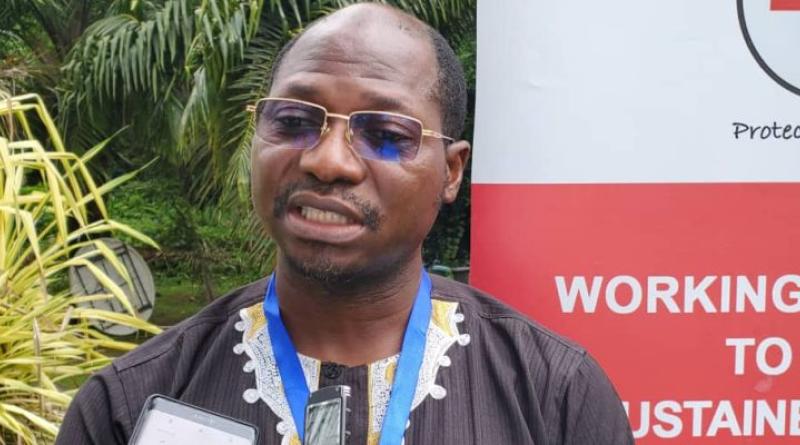Joseph Yepka: “the Cameroonian fishing law is being revised”

Cameroon can no longer export its fishing resources to the European market. This is the result of a red card given to it in January 2023 by the European Commission, which labels the Central African country as a “non-cooperating country in the fight against illegal, undeclared and unregulated fishing (fishing INN, Editor’s note). To remedy this status, several administrations in the country have taken action to improve fishing control. In this interview, Joseph Yepka, deputy director of fisheries at the Cameroonian Ministry of Livestock, Fisheries and Animal Industries (Minepia), answers questions from AFRIK21 on the actions taken by the government.
AFRIK21 : Fishery products from Cameroon have been banned from entering the European market since January 2023. A red card relating to the status of “non-cooperating country in the fight against illegal, undeclared and unregulated fishing (IUU fishing, Editor’s note) », which Cameroon now occupies in the files of the European Commission. How do you view the attribution of such a status to your country?
Joseph Yepka : Firstly, I think it is important to clarify the situation, given the comments surrounding this red card. It must be understood that this red card is simply an alarm bell, concerning some of the country's weaknesses in the control of fishing carried out by boats flying the Cameroonian flag. What is indexed is the weakness in controlling our boats outside our waters, in third countries. So, strictly speaking, it is not the fact that Cameroon is a country which practices IUU fishing or which gives in to this, no, it is not about that. You know, controlling our boats outside our waters requires significant technological resources, a network and others.
Afrik21 : What has the Cameroonian government done in the meantime to overcome these difficulties in controlling long-distance fishing boats?
Joseph Yepka : Precise and practical measures have been taken. Already, there is a framework of collaboration which is being put in place, under the aegis of the first ministry, between the ministry in charge of fisheries and the ministry of Transport. Because if the ministry in charge of fisheries ensures control of this activity, it is the ministry of transport that is responsible for registering the boats, and therefore giving the flag. Hence the need for collaboration between these two administrations, in order to ensure better control of the fishing boats to which we give our flag.
The government's second response is structural, as it falls within the framework of the revision of the law. You know the Cameroonian fishing law is currently being revised, and the process is quite advanced. And there are a certain number of innovations which are contained in this bill, in order to better manage the issues of control of our boats and the fight against IUU fishing.
“ Fishing communities are just as guilty of IUU fishing ”
Afrik21 : What figures for IUU fishing has Cameroon recorded to date?
Joseph Yepka : IUU fishing does not follow the rules. It is also not declared. And you know, when something isn't reported, we have a hard time quantifying it. Even across the world, IUU fishing is difficult to quantify. It is true that we can quantify the number of boats or fishermen who have been arrested in an IUU fishing situation, but even then, it is impossible to take into account the traffickers who go under the radar. It still remains that IUU fishing is a scourge, because it attacks fishery resources, which are very important for food security. It must be fought at all costs, and Cameroon is on this path.
Afrik21 : What message do you have for coastal communities, who live mainly from resources, today prey to IUU fishing?
Joseph Yepka : Rather, I am sending a message of responsibility. Because we must remember that IUU fishing is not practiced by angels, but rather by people, fishermen. Even community members can be guilty of IUU fishing. Therefore, industrial fishing stakeholders and even communities must understand that fishery resources are a precious asset, a national asset, which must also benefit future generations. Everyone must practice fishing with full responsibility, respecting Cameroonian regulations in this area, because this is what guarantees us sustainable management.
The Ministry of Livestock, Fisheries and Animal Industries (Minepia) is only one player in fishing in Cameroon. If Minepia does its job well, and the other actors don't do theirs, we'll go nowhere. And respecting the rules consists here of respecting the nets, not using prohibited fishing techniques, not using prohibited fishing gear, not fishing in areas prohibited for fishing, such as breeding areas and marine protected areas, etc. So, it is a call for responsibility on each of us.
Comments collected by Boris Ngounou






